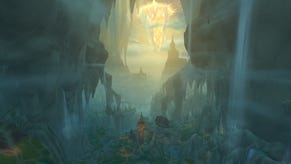Ten Years Later: USgamer Debates Whether the Nintendo Wii Was a Success or a Failure
Nadia and Kat look back on Nintendo's short-term sensation with the benefit of hindsight.
This article first appeared on USgamer, a partner publication of VG247. Some content, such as this article, has been migrated to VG247 for posterity after USgamer's closure - but it has not been edited or further vetted by the VG247 team.
Crazy as it is to say, the Wii is now officially 10 years old. Its arrival on November 19, 2006 created a sensation while launching a thousand Wii Remotes into unsuspecting television screens. Nowadays, it isn't so highly regarded. But does it deserve to be remembered as a failure? Or was it more than just a mid-2000s fad? We discuss.
Kat Bailey, Senior Editor
The Wii Was a Failure
When Nintendo formally unveiled the Wii in 2005, they signalled to the industry that they planned to compete on their own terms. Realizing that they would hardly be able to steal away the hardcore market dominated by Sony and Microsoft, Nintendo instead struck out into what the late Satoru Iwata termed 'the blue ocean.' And for a while, it worked brilliantly.
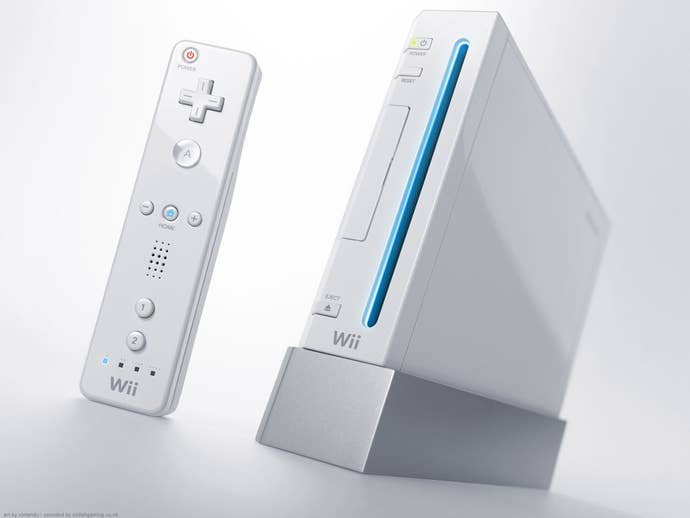
With the benefit of hindsight, though, it feels like the Wii never quite reached its potential. For all the buzz about motion controllers, the Wii Remote was often more a hindrance than a help for developers, and the tides of casual gamers who embraced the Wii at the outset dissipated once mobile gaming took hold. What was left was a host of disappointed Nintendo fans swimming in a sea of third-rate adaptations of Dancing With the Stars.
The rise and the fall of the Wii could be seen through people like my parents, who were among the legions to buy one of the consoles when it was still a hot item in 2007. My dad had been a gamer back in the '70s and early '80s, but he had long since fallen off, and the Wii was a fun way to embrace a little bit of the fun of his twenties. He and my mom would have date nights where they would play Wii Bowling or Wii Golf.
But like so many others, they never really got past the point of playing what was originally supposed to be a proof-of-concept demo. They dabbled in Wii Fit—a fitness game sold more on hype than merit—and were flummoxed by New Super Mario Bros. Wii, which saw my poor mother trail helplessly in a bubble as I did the bulk of the heavy lifting. In that, the Wii was hardly the gateway that many had hoped it would be. After a couple years, my parents moved on to mobile gaming, and the Wii's moment passed.
The Wii was similarly a letdown for core gamers. Motion controls were sold as a method that would unlock whole new ways of playing games; but in the end, nothing came of it. Without one-to-one motion control, gamers were typically reduced to broad motions that bore little resemblance to their real-life counterparts, rendering sword-fighting games and their ilk disappointing. By the time the Wii MotionPlus came around, serious third-party developers were long gone.
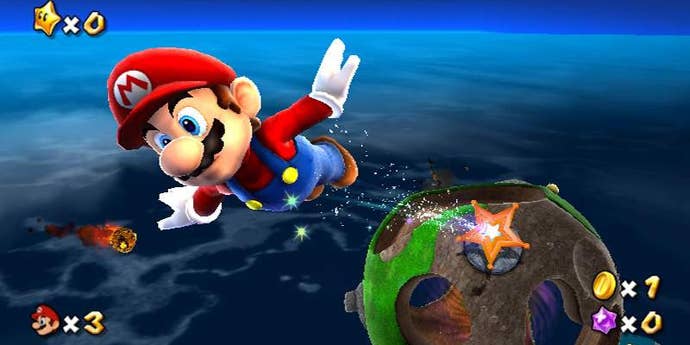
Tellingly, many of the platform's best games made little use of the motion controls: Super Mario Galaxy, Fire Emblem, Xenoblade Chronicles, New Super Mario Bros. Wii, and Punch-Out!! could have all been played with traditional controllers. Twilight Princess lost its motion controls entirely when it was ported to the Wii U. Skyward Sword and Metroid Prime 3 were probably the best examples of motion control integration on the platform; and in the case of the former, they were as much a distraction as anything. What does it say when even a top-tier developer like Nintendo can't build on its own innovation?
In the end, the Wii's useful life was about three years. By 2009, widespread adoption of high-definition televisions had left the Wii looking painfully dated, and early adopters and casual gamers were leaving in droves. But instead of moving on quickly, Nintendo let it linger for another three years.
When I look back on the Wii's legacy, it's with frustration over the fact that it wasn't able to hold on to its "blue ocean gamers," nor really build on its central selling point: the Wii Remote. Was there ever anything there to build upon? Perhaps not. Neither Microsoft or Sony were able to do any better (the PS Move's utility on the PSVR aside). But then again, it worked pretty well with first-person shooters. Maybe the Wii's limited technology meant that it never got a chance to properly shine.
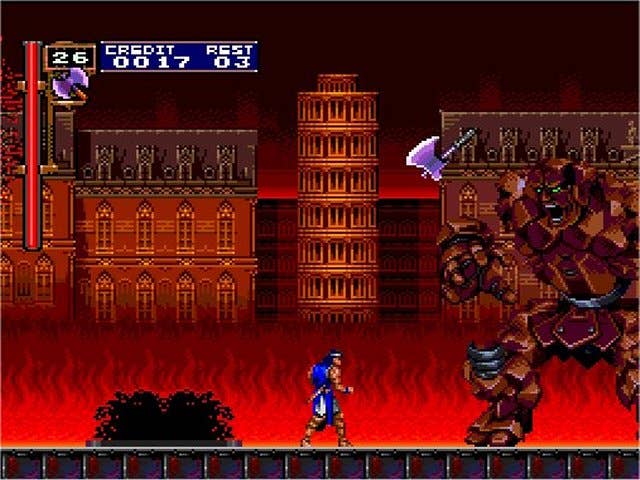
Nowadays, more people than ever are playing games, but there is a yawning divide between "gamers" and the rest of the populace. As for Nintendo, they may have survived, but in recent years they've had to lean more and more on their core fans. The closest they've come to recapturing the Wii's blue ocean is Pokémon Go: a third-party mobile game using a second-party property. Their other biggest success, the NES Classic, is a nostalgia item. The Wii U is a creative success but an abject commercial failure.
The Wii may have been a short-term sensation, but it was neither able to make a lasting impact with its motion controls nor hold on to its audience; and with a few exceptions (Super Mario Galaxy, Xenoblade Chronicles), its library was deeply disappointing. And so with that, I'm afraid I have to say that the Wii was ultimately a failure.
Nadia Oxford, Staff Writer
The Wii Was a Success
I won't deny the Wii had Issues (note the capital "I"), but it doesn't deserve to be called a failure. True, its primary gimmick – waggle, waggle, waggle – failed to stick around, and I don't miss it. But the Wii's success shouldn't be measured exclusively by motion controls' lack of "stickiness." The weird little console made a lasting impact in more ways than one.
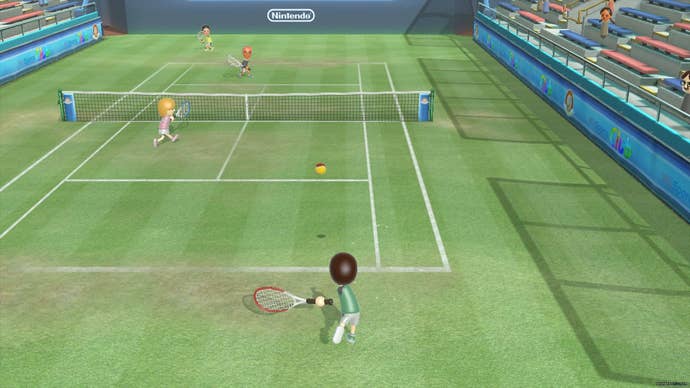
For starters, the Wii made Nintendo a lot of money. That's a very important point, considering the PlayStation stole the N64's lunch money, and the PlayStation 2 gave the GameCube a wedgie for the ages (like, Nintendo could have theoretically flossed its teeth with the crotch of its own underwear). The Wii's success gave Nintendo a very comfortable cushion to fall back on, which has undoubtedly proved very welcome following the Wii U's... problems.
Then there's the fact the Wii got a lot of people into gaming. Mothers, fathers, grandmothers, grandfathers – everyone was doin' it. And while it's true many of those casuals moved on to browser-based games and mobile games after the thrill of Wii Bowling wore off (much to Nintendo's chagrin when it expected its new audience to adopt the Wii U), it was very nice to see video games make the news for reasons other than stories about "murder simulators" and ballooning child obesity.
I believe the Wii's success helped people realize there's far more to games than bang-bang stab-stab. True, you still see people get sucked in by phoney baloney documentaries about how video games eat kids' brains, but I think it's safe to say adults' fear and ignorance about video games, which was once as much a part of the pastime as Mario, has largely dried up.
I also like to think the Wii helped a lot of struggling families during the Great Recession. Nintendo's console was by far the most affordable gaming option during the downturn, barring the Nintendo DS. The Xbox 360 and PlayStation 3 were much more expensive, and most of the games developed for Microsoft and Sony's consoles were close to unplayable if you didn't also invest in an HDTV – an indulgence many families couldn't afford at the time. Not only was the Wii cheaper, its games looked fine on standard definition TVs.
Obviously, not all the Wii's games were winners. In fact, the system's third-party showing was dismal. Nintendo and its second parties had some good showings, though: Super Mario Galaxy and Super Mario Galaxy 2 were awesome, New Super Mario Bros Wii let us re-discover the joy of local multiplayer games in a time when online multiplayer was king, and Xenoblade Chronicles remains one of my favorite RPGs of all time. The Legend of Zelda: Skyward Sword doesn't earn a spot on most people's "Best Zelda" lists, but I still feel like Nintendo had some amazing ideas going in the game – and there's evidence the upcoming Breath of the Wild borrows from Skyward Sword's strengths.
When the Wii's contributions to Nintendo and the industry are laid out before me, I can't bring myself to dislike it. Is it a flawed system? Sure. Did its success cause Nintendo to get too full of itself and learn a hard lesson with the Wii U? Yeah, probably. But I'm glad the Wii made Nintendo enough money to let the company learn from its mistakes and develop The Switch. I feel like the Nintendo of today is sharper and keener because of everything the Wii taught it, both good and bad.
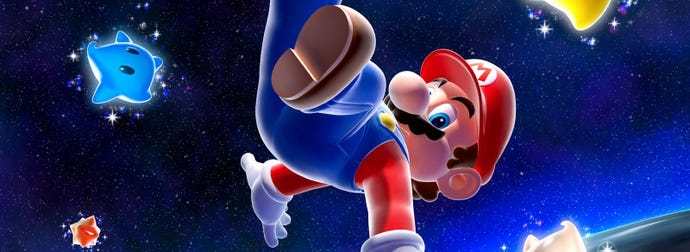


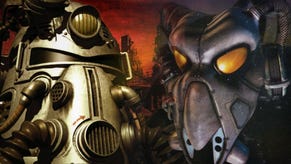



_ddwYK80.png?width=291&height=164&fit=crop&quality=80&format=jpg&auto=webp)
